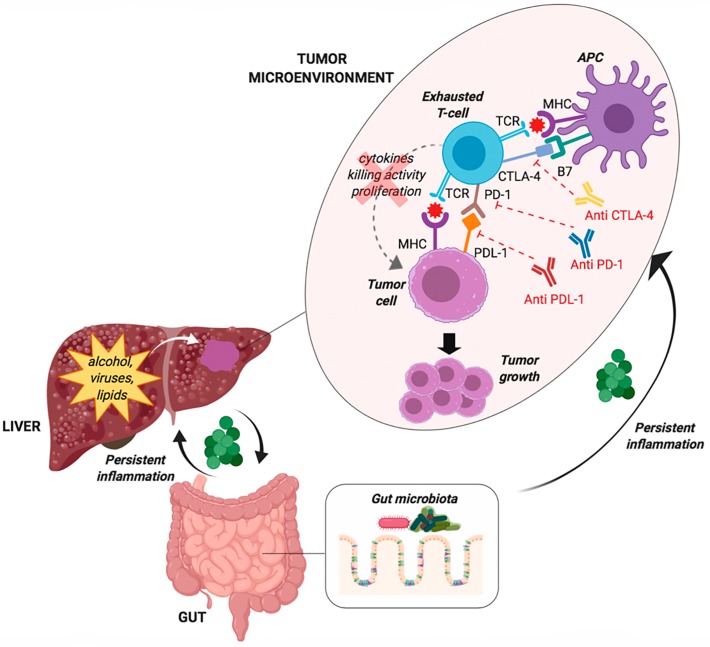Figure 1.
Mechanisms of immune system paralysis in patients with hepatocellular carcinoma (HCC). Inflammatory damage triggered from various factors (alcohol, hepatitis viruses, lipid accumulation, etc.) and from the gut microbiota is involved in the pathogenesis of HCC both directly and indirectly, through T-cells exhaustion. Exhausted T-cells express inhibitory receptor proteins and have a diminished capacity to produce cytokines, proliferate and kill cells. Indeed, antigen presenting cells (APC) and tumour cells express inhibitory molecules such as programmed cell death ligand 1 (PDL-1) and B7 that interact with the surface antigens programmed cell death 1 (PD-1) and cytotoxic T-lymphocyte-associated protein 4 (CTLA-4) on T-lymphocytes, inhibiting the downstream signalling caused by the T-cell receptor (TCR)/ major histocompatibility complex (MHC) interaction with tumour antigens thus favouring tumour growth.

